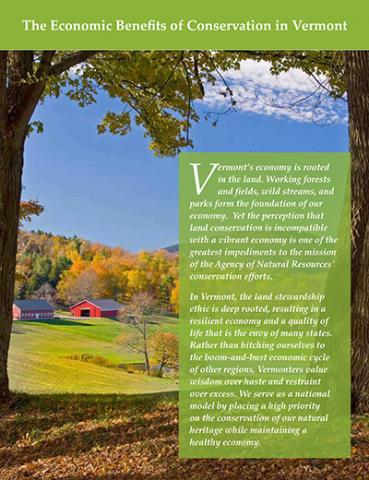Forest Foundations of the Genuine Progress Indicator: Macroeconomic Policy and Planning for the Vermont Landscape

Vermont and other Northern Forest states are witnessing the first downturn in forest land cover since the recovery that began in the mid-1800s. The change is happening in part through fragmentation, affecting functioning and delivery of economic benefits from forest landscapes. To fully assess these benefits, policy-makers need new macroeconomic indicators that account for both the costs and benefits of forest land conversion.
At the same time, Vermont is leading the nation in the development, adoption, and implementation of new indicators that guide genuine economic progress. In the case of forest land use change, the market benefits of forestry and land conservation are not typically weighed against the non-market costs of loss of ecosystem services, depletion of renewable resource stocks, and longer-term impacts on forest productivity. To move towards full cost accounting and more informed policy making, the Genuine Progress Indicator (GPI) was developed at the national scale to measure the long-term, net benefits of economic activity, including forest land use and management.
NSRC researchers worked to advance the GPI at state scales by developing and extending a Vermont GPI to other states. This led to updates to the Vermont GPI, a detailed study for Massachusetts, and estimation and analysis of the first 50-state GPI study. Researchers also advanced forest-related sub-indicators within the GPI and applied forest ecosystems services assessments to Vermont. They built economic arguments for forest land conservation with the Vermont forest policy community through an initiative with the Vermont Agency of Natural Resources on the "Economics of Conservation" which supported state policy development on forest fragmentation.
